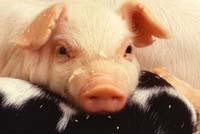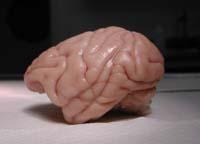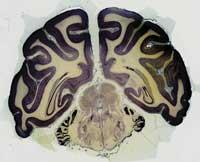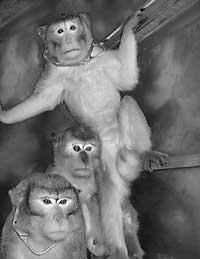Research, animals and rights
2008/06/21 Galarraga Aiestaran, Ana - Elhuyar Zientzia

The two largest institutes in Zurich have filed an appeal with the Swiss Supreme Court because they do not agree with the judgment of the local court of Zurich. In fact, judges have banned the use of macaques in two experiments that are being carried out to know how the brain adapts to changes.
In fact, the three entities that control animal experiments were authorized in 2006 by the experiments they have now banned: from the Swiss Science Foundation, from an agency that subsidizes research and from the Veterinary Office of Zurich. The latter, however, changed its mind and that has caused the ban.
In Switzerland there is an advisory commission on animal experiments and they consider that the proposed experiments were harmful to animals. They attack the dignity of animals. The advisory council was based on the need to recognize the dignity of living beings that was introduced in the Swiss Constitution in 2004.
Subsequently, the Veterinary Office of Zurich modified its opinion and the court of Zurich has banned both experiments. The sentence, however, does not speak of the dignity of the macaques. The reason for the ban is another: the experiments have a three-year grant and society at that time will not benefit from them, so it is not justified to make the animals suffer.
The court has been based on a law that recognizes the suffering of animals and the benefit of society. In fact, the Swiss legislation determines that the authorization for the use of animals must be made by measuring the experimental benefits and suffering caused to animals. According to the law, it would not be fair to use animals in an experiment if great benefits are not expected.
However, research institutes have denounced that the court has interpreted the law in a different way and it does not seem fair to ask an investigation to immediately benefit from the authorization for the use of animals. In the words of the vice president of the Zurich Research Institute, “it is incompatible with basic research”.
Prohibited studies, for example, were to be conducted jointly by this institute and the University of Zurich at the Institute of Neuroinfomatics. In one of them, it was about analyzing some changes that occur in the cerebral cortex during the learning process. For this purpose, among other things, they should not give drinks to macaques for twelve hours. With this it was sought to increase the value of the apple juice that they had to collect when learning to perform a new job. The other experiment aimed to understand the microcyte of cortex, and for this purpose, they had to kill macaques to analyze the microcyte under a microscope.
The question to debate around the world

According to the researchers, macaques are suitable for these experiments, since they are very similar to the human brain. And it seems essential to carry out this type of research to understand the basic biology of the brain. Otherwise, no pathways can be sought to cure Parkinson's disease and other neuronal diseases. In addition, they fear that the prohibition of both investigations would lead to the non-authorisation of others.
For example, 550,505 animals were used in Switzerland in 2005. 10.6% more than the previous year, mainly due to the amount of genetically modified mice. The primates were 408. However, the trend is that less and less animals are used: In 1983 they employed almost two million.
And this does not happen only in Switzerland, the issue is debated around the world. For example, in Britain there is also a great controversy among those who put animal rights at the level of humans and those who believe they are essential for experiments. Between the two extremes there is a great variety of thoughts, but the five most important centers that use animals to investigate in Britain elaborated the instructions of the three R and act accordingly.
The three R are: replacement, reduction, refinement; that is, substitution, reduction and fineness. Thus, first of all, it is recommended to replace animals with other methods (cell cultures, computer simulations, etc. ). The use of animals in the experiment would, therefore, be the last option. Through the Second R it is recommended that animals use as little as possible amount of animals in those cases where it is strictly necessary. And, finally, they determine the need to refine the techniques of using them, in order to cause the least damage and stress possible to the animals.
In the European Union, for its part, legislation on animals used in experiments was created in 1986, in order to harmonize national legislation. The legislation establishes who and for what can and how animals should be used. It establishes the rules that should be followed by nurseries and laboratories, making explicit reference to the fact that animals should not suffer pain or stress (for this purpose anesthesia and sedatives can be used). Once the experiment is finished, the designer of the experiment must also decide whether the animal is left or not alive. Always for the benefit of the animal, but that yes, after having used it for the benefit of science (of the human being). Is there another alternative?
Published in Gara

Gai honi buruzko eduki gehiago
Elhuyarrek garatutako teknologia






